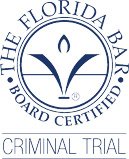Juvenile Crimes Defense Lawyer
Reports from the Florida Department of Justice indicate that 80 out of every 1,000 kids living in the state of Florida were considered juvenile delinquents in 2009 to 2010. The majority of minors charged with juvenile crimes – 16,516 kids in total during this period – were charged with misdemeanor theft. Of the kids charged with felonies, burglary was the most common offense. 11,831 children under the age of 18 in Florida committed burglary in 2009.
Impact of Conviction for Juvenile Crime
Juvenile offenses are an all-too-common occurrence and, while some of these cases may be handled in family court instead of criminal court, a conviction for a juvenile crime can have serious and life-changing consequences.
Kids convicted of serious crimes can be sent to juvenile detention facilities, lose their driver’s license, and face a criminal record that might not necessarily be sealed or expunged upon the child’s 18th birthday.
Because of the serious nature of juvenile crimes, it is imperative that you contact an experienced Tampa criminal defense lawyer as soon as you or your child has been arrested for allegedly committing a crime.
Florida’s Juvenile Criminal Justice System
The juvenile justice system in Florida can be a frightening place for children and they need an advocate to defend their rights. Stechschulte Nell can help. As a former prosecutor in the juvenile division, Ben Stechschulte has extensive knowledge of how juvenile cases are prosecuted in Florida.
Since becoming a Tampa criminal defense attorney, our firm has used his insider knowledge of the Florida juvenile justice system to represent many juveniles accused of crimes and to achieve the best outcome. Call us 24/7 to speak with our top-rated defense lawyer about your case.
Juvenile Crimes in Florida
If a minor is charged with a criminal offense, he or she will be transported to a division of the Department of Juvenile Justice called the Juvenile Assessment Center. There, a determination will be made regarding whether the minor presents a danger to himself or others and should be kept under secured custody or whether a child can be released to parental custody pending his arraignment.
If the child is kept in the custody of the Department of Juvenile Justice, then a detention hearing in front of a judge must be held within 24 hours to determine if release is appropriate and under what conditions.
After this initial arrest and release process, there is a formal arraignment where the juvenile hears a recitation of the charges against him or her and is asked to enter a plea. Sometimes, at the arraignment phase, a prosecutor will move to transfer the case to an adult court if a serious crime has been committed.
If the case stays in juvenile court, there is then a discovery period during which each side obtains information from the other and builds a case. Often, plea negotiations take place during discovery.
Stechschulte Nell, Tampa Juvenile Crimes Lawyer
An experienced Tampa criminal defense attorney can help you navigate each stage of the process, build your case and determine the best course of action. We can also help determine if your child is eligible for any special pre-trial diversion programs for teens and minors who commit crimes.
We will explain all of your options and advise you on the risks and benefits of each option. To learn more about juvenile crimes in Florida or about how we can help, contact Stechschulte Nell today.












